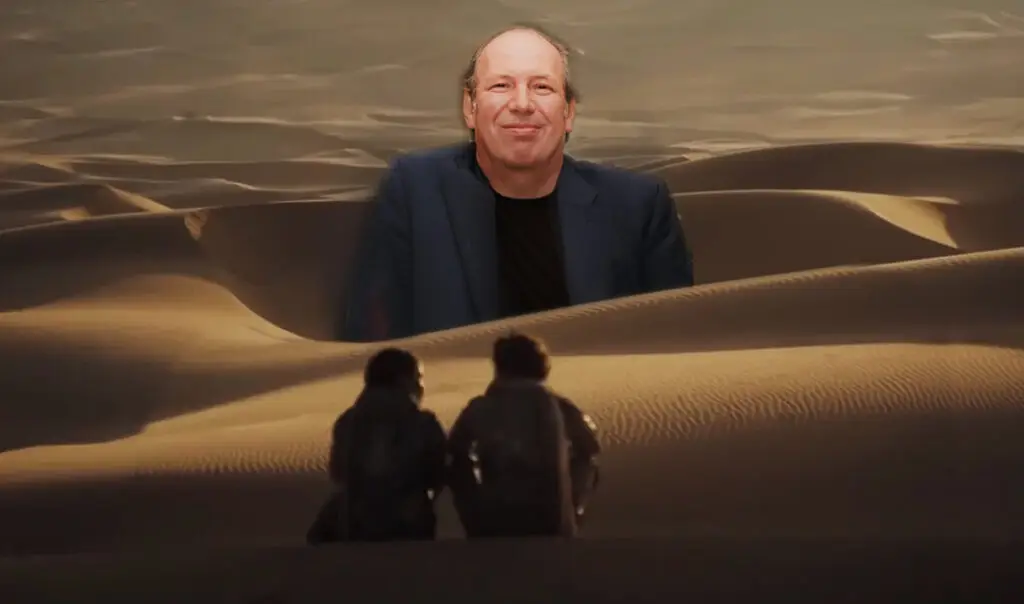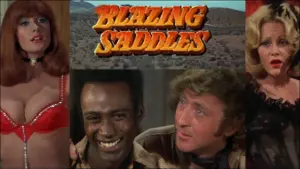With Dune: Part 2 set to hit theaters in 2024, fans are already looking forward to additional music from Hans Zimmer, who won the Oscar for his score of the 2021 movie’s first installment. In the meantime, a look back at other Zimmer soundtracks is in order.
First, a point of order: Zimmer runs a company is called Remote Control Productions, employing dozens of composers/arrangers, so for more recent Hans Zimmer scores it’s hard to say entirely how much he personally composed, versus setting out a main theme and ideas and letting others come up with music to fit the movie’s needs.
The full Zimmer filmography covers at least 157 movies, with his start in the 1980s. For comparison, John Williams has composed a little over 100 movie scores going back to the late 1950s.
Some of Zimmer’s early successes include the Polish drama Moonlighting and early Daniel Day Lewis film My Beautiful Laundrette.
A standout from that time period is Nicolas Roeg’s Insignificance, the score of which he co-composed with Stanley Myers. That soundtrack it was released by and is of-a-piece with the Zang Tumb Tumb (ZTT) record label, also responsible for 1980s techno-pop artists Frankie Goes to Hollywood, The Art of Noise, and Propaganda.
Some other favorites:
Black Rain: Lots of bombast and electronic percussion, with Japanese elements. Some good pensive suspense type music with an open, kind of upbeat melodic feel that makes a nice contrast with foreboding undercurrents elsewhere.
True Romance: Zimmer only did a few pieces for this soundtrack, primarily re-working Carl Orff’s wood-block compositions that were used in Terence Malick’s Badlands, which has a somewhat similar lovers-on-the-road story. (Zimmer would later work directly with Malick on The Thin Red Line.)
Broken Arrow: Zimmer goes full bombast with action-movie cues for this John Woo spectacle. This is the sort of stuff Zimmer over-worked for Transformers and other Michael Bay movies (the soundtracks of which, for many, are not top listening choices on their own). I listened to this soundtrack on repeat at my workplace on Sept. 11, 2001, to tune out all the distressed chatter around me, and now the association between its suspenseful music and that unfathomable event is burned in my memory. There is a catchy recurring theme in this soundtrack that features twang-guitarist Duane Eddy, and it gives a strangely romantic motif for the cartoonishly “cool” villain played by John Travolta, who is often seen flicking away his cigarette in slow-motion and partaking of other John Woo stylistic indulgences.
The Thin Red Line: Has a moody, rising, contemplatively overwhelming theme that makes great background music while getting things done around the house, etc. It also worked exceptionally well for a war movie that is about all the mortal thoughts in the different soldiers’ minds.
The Ring: Some creepy, Philip Glass-like swirling violin music used here, along with ambient accompaniment for the surreal, watch-it-and-you’ll-die “ring” video, and scary horror music too. Very effective.
The Weather Man: Interesting music for an underrated Gore Verbinski film about the mental state of a TV weather man (Nicolas Cage) whose wife (Hope Davis) has dumped him, and whose adolescent daughter doesn’t understand why her classmates call her “Camel Toe.” Zimmer worked with both Verbinski and Nic Cage repeatedly, also scoring the former’s Pirates of the Caribbean and the latter’s The Rock.
Inception: In my opinion this is one of Zimmer’s most re-listenable scores, a perfect fit for the disoriented Escher-puzzle premise. It’s as if the music was caught via a microphone attached to a dreamcatcher. Especially enjoyable is the Johnny Marr (of The Smiths) guitar work being done for “Dream Within a Dream” and other tracks. Zimmer’s melodies capture an enigmatic dreamy feeling, and the thundering “bomp bomp” motif is built around a slowed-down rhythm in a French-language, WWII-era Edith Piaf song, laying a haunting sonic foundation for the movie’s concept.
Sherlock Holmes (and sequel, Game of Shadows): Not a genius soundtrack but does some catchy stuff merging the fiddling Old England style with the energetic contemporary mainstream feel of a Guy Ritchie big-budget action movie.
Interstellar: Some of the soundtrack’s stark, pipe-organ-grandiose pieces build into amazing long-form composition, working well with the world-decaying despair and lonely, galaxy-spanning emptiness of the (often too-ponderous) story. The music for when the characters’ ship is sucked into the black hole (at least for some of them) is perfectly calibrated to the emotional impact of that scene, especially when Anne Hathaway’s character realizes Matthew McConaughey has decided to sacrifice himself.
Chappie: With a starry-night, lullaby-like melody reminiscent of Danny Elfman’s Edward Scissorhands score, this soundtrack captures the childlike self-awareness of the sentient police-military robot. It’s a pity this movie didn’t fully pull together its story, because it’s an ambitious mashup of various sci-fi and crime genres with a definite nod to Robocop. The soundtrack stands alone very well even if you haven’t seen or don’t like the Neil Blomkamp movie.
Dunkirk: A really adrenaline-soaked, but panicked and worried-feeling soundtrack, capturing the impending fear and doom of being stuck in a vulnerable war situation with time running out for a safe retreat. Like Inception, the entire soundtrack seems to be built around one main sonic idea, in this case the blare of an air-raid siren.
Blade Runner 2049: This soundtrack had a lot to live up to, trying to match the epic, neon-and-rain-soaked, lonely and future-noirish gloom of the original Vangelis soundtrack for 1982’s Blade Runner. It succeeds very well. A simple and effective piano theme, vast foreboding synth washes, menacing motorcycle-like growling noises, and much more are used to fill in the nearly 3-hour atmosphere of the movie’s expanses. (I wish the movie itself had been as good as the soundtrack, but it has some inspired scenes.)
Top Gun: Maverick: Not a lot here stands alone, but it works well for the movie. Especially effective is the action theme for the most dangerous part of the aerial assault on the missile silo compound, when the planes have to get past the defense system and then take on superior modern aircraft.
What are your favorite Hans Zimmer tracks? Or those by other composers you prefer?








